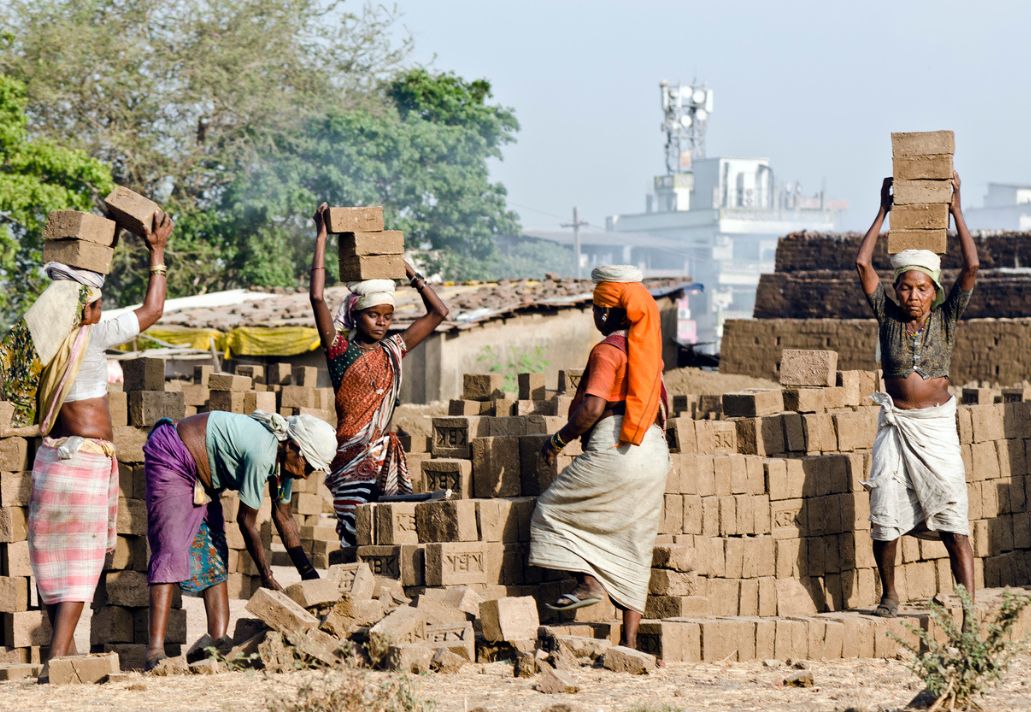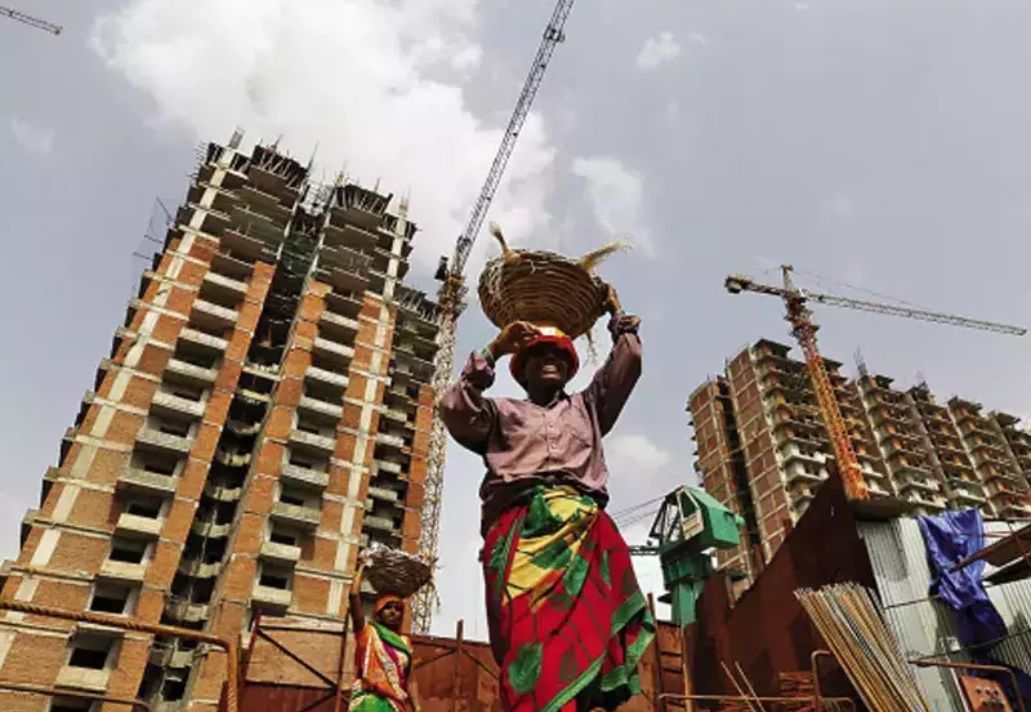A survey conducted by the NGO Mahila Housing Trust and the Help Delhi Breathe Campaign found that nearly 94 percent of women construction workers in Delhi do not raise their voices against air pollution at construction sites for fear of losing their jobs.
The survey said that awareness has increased among women construction workers in Bakkarwala, Gokulpuri, and Saoda Ghebra areas, where two NGOs conducted a massive awareness campaign on air pollution recently, saying that such more awareness campaigns will not only lead to Behavioral change regarding air pollution but also creating more awareness and driving change at the ground level.

As part of this awareness campaign in these three villages in Delhi, hundreds of women construction workers were targeted, which included mobilization activities and educational sessions on the effects of air pollution, suggesting that changes can be made both at the household level and at the construction site to reduce exposure to pollution sources. The women were also educated on steps they could take to mitigate air pollution at construction sites, which mainly originates from dust recovery.

A total of 390 respondents, all women, were then surveyed on air-pollution-related issues, with around 68 percent of them feeling that focusing on reducing air pollution could limit their employment opportunities, but most admitted that they were affected by pollution in Delhi. About 75 percent of respondents admitted to feeling sick and uncomfortable when the air quality was poor or high, while 73 percent of women reported having at least one of the following problems: shortness of breath, asthma, cough, skin allergies, redness or eye irritation.
The survey also said that nearly 93 percent of respondents felt that public transportation should be improved so that more middle-class people could move away from their private vehicles. To gauge the impact of educational outreach, a survey was also conducted at the beginning and end of the nine-month campaign, finding awareness among female workers about air pollution-related issues increased by 21 percentage points, up from 76. percent to 97 percent.
The survey said, “The endline research shows us that women construction workers are making behavioural shifts based on our campaign. But, for systemic changes to take place, clean air groups need to centre their actions around such invisibilised groups too.”

